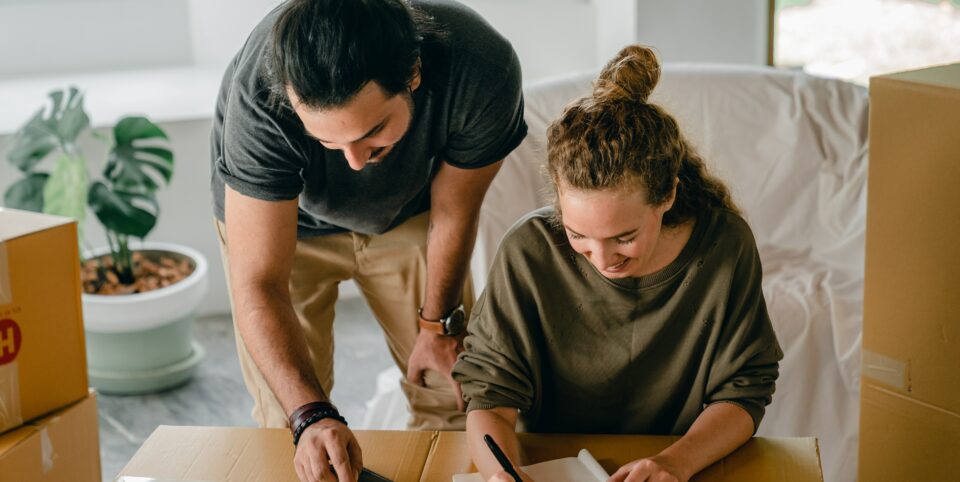Contact
020 4515 6728
info@ccameron.co.uk
Charles Cameron & Associates
Blackfriars Foundry
154-156 Blackfriars Road
London SE1 8EN
Government homeownerships options
October 21, 2021
Information published was correct at the time of writing
--

Saving a deposit, securing a mortgage or finding the right home at the right price is difficult for some people, which can result in them being priced out of buying on the open market. If you’re in this situation, it is worth looking into the government schemes on offer to help you get on the property ladder.
HELP TO BUY
The government’s new Help to Buy scheme replaced the previous scheme. It came into place from 1 April 2021 and comes to an end in March 2023. There are no plans for any further extensions. The new scheme introduced property price caps and is restricted to first-time buyers only, supporting people onto the housing ladder. You’ll need to pay a minimum deposit of 5% of the property purchase price and arrange a repayment mortgage of at least 25% of the property purchase price. You can then borrow an equity loan to cover from 5% and up to 20% of the property purchase price of your newly built home.
If the property is in London, you can borrow up to 40%. The equity loan percentage you borrow is used to calculate your interest and equity loan repayments. You do not have to pay interest for the first five years. In the sixth year, you’ll be charged interest at a rate of 1.75%. This will be applied to the equity loan amount you originally borrowed (the equity loan percentage of the property purchase price). This annual interest is spread over the year in monthly payments. The interest rate increases every year in April, by adding the Consumer Price Index (CPI) plus 2%. Your interest payments will decrease if you make a part repayment of the equity loan. This is because the amount to which the interest rate is applied will reduce.
The Help to Buy equity loan scheme closed to new applications on 31 October 2022.
95% MORTGAGES
From 19 April, first-time buyers are now able to purchase a home with only a 5% deposit. The scheme is aimed at increasing the supply of 5% deposit mortgages for credit-worthy households by supporting lenders to offer these products through a government-backed guarantee. First announced in Budget 2021, the scheme will help first-time buyers or current homeowners secure a mortgage
with just a 5% deposit to buy a house of up to £600,000 – providing an affordable route to homeownership for aspiring homeowners. The government has offered lenders the guarantee they need to provide mortgages that cover the other 95%, subject to the usual affordability checks.
First announced in Budget 2021, the scheme will help first-time buyers or current homeowners secure a mortgage with just a 5% deposit to buy a house of up to £600,000 – providing an affordable route to homeownership for aspiring homeowners. The government has offered lenders the guarantee they need to provide mortgages that cover the other 95%, subject to the usual affordability checks.
SHARED OWNERSHIP
This route gives first-time buyers, previous home owners who cannot afford to buy one now or existing shared owners the option to buy a share of their home (between 25% and 75%) and pay rent on the remaining share. You can buy a home through shared ownership if your household earns £80,000 a year or less (or £90,000 a year or less in London). If you’re aged 55 or over you can buy up to 75% of your home through the Older People’s Shared Ownership (OPSO) scheme.
Once you own 75% you will not pay rent on the rest. You can apply for a scheme called Home Ownership for People with Long-term Disabilities (HOLD) if other Help to Buy scheme properties do not meet your needs, for example, you need a ground-floor property. With this scheme, you can buy up to 25% of your home. If you’re disabled you can also apply for the general shared ownership scheme and own up to 75% of your home.
Under shared ownership you can buy more of your home after you become the owner. This is known as ‘staircasing’. The cost of your new share will depend on how much your home is worth when you want to buy the share.
It will cost more than your first share if property prices in your area have gone up and less than your first share if property prices in your area have gone down. The housing association will get your property valued and let you know the cost of your new share. You’ll have to pay the valuer’s fee.
If you own a share of your home, the housing association has the right to buy it first. This is known as ‘first refusal’. The housing association also has the right to find a buyer for your home. If you own 100% of your home, you can sell it yourself.



